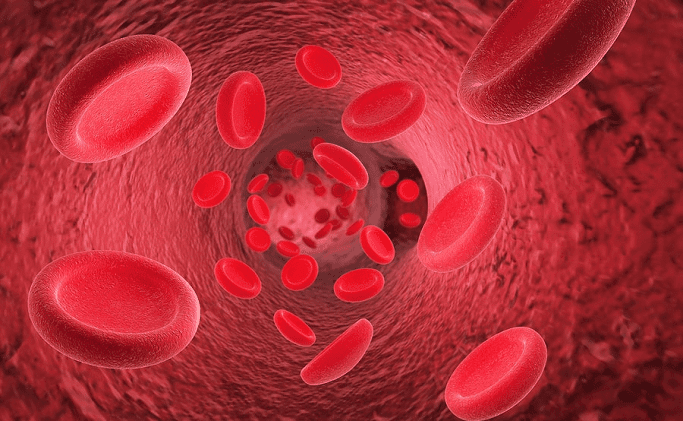Understanding the MCHC Blood Test: A Comprehensive Guide

When it comes to monitoring your health, blood tests play a pivotal role in diagnosing and managing various conditions. Among the many parameters assessed, the Mean Corpuscular Hemoglobin Concentration (MCHC) is a crucial indicator. This article unpacks everything you need to know about the MCHC blood test, including its purpose, significance, and what your results could mean.
What Is the MCHC Blood Test?
The MCHC blood test measures the average concentration of hemoglobin in your red blood cells. Hemoglobin is a vital protein responsible for carrying oxygen throughout your body. The test is typically part of a complete blood count (CBC) and provides valuable insights into your overall health, especially in diagnosing and monitoring conditions related to anemia or blood disorders.
Why Is the MCHC Blood Test Important?

Understanding your MCHC levels can help healthcare providers identify and treat potential health issues, such as:
- Anemia: Low MCHC levels may indicate hypochromic anemia, where red blood cells lack sufficient hemoglobin.
- Nutritional Deficiencies: Abnormal levels can point to deficiencies in iron, vitamin B12, or folate.
- Chronic Diseases: Conditions like liver disease or certain cancers can affect MCHC levels.
How Is the MCHC Blood Test Conducted?
The MCHC test is part of a CBC panel and requires a simple blood sample. Here’s what to expect:
- A healthcare professional draws a small amount of blood from a vein, usually in your arm.
- The sample is sent to a laboratory for analysis.
- Results are typically available within a few days.
The procedure is quick and minimally invasive, making it a standard diagnostic tool in modern medicine.
Understanding MCHC Blood Test Results
MCHC levels are measured in grams per deciliter (g/dL). Here’s how to interpret your results:
- Normal Range: 32-36 g/dL
- Low MCHC Levels (<32 g/dL): May indicate conditions like iron-deficiency anemia or chronic blood loss.
- High MCHC Levels (>36 g/dL): Could suggest hereditary spherocytosis, autoimmune hemolytic anemia, or other rare conditions.
Always consult your healthcare provider for an accurate interpretation of your results and to discuss any necessary follow-up steps.
Factors That Can Influence MCHC Levels
Several factors can impact your MCHC levels, including:
- Diet: Poor nutrition can lead to imbalances in essential nutrients like iron and vitamin B12.
- Medications: Certain drugs may affect hemoglobin production or red blood cell health.
- Chronic Illness: Underlying health conditions can influence your blood parameters.
- Lifestyle Choices: Smoking, alcohol consumption, and lack of exercise can all play a role in your overall blood health.
Tips for Maintaining Healthy MCHC Levels

- Eat a Balanced Diet: Include iron-rich foods like spinach, red meat, and legumes, as well as vitamin B12 and folate-rich options such as eggs and fortified cereals.
- Stay Hydrated: Proper hydration supports overall blood volume and health.
- Regular Exercise: Physical activity boosts circulation and oxygen delivery throughout your body.
- Routine Checkups: Periodic blood tests can help monitor your health and detect potential issues early.
Common FAQs About the MCHC Blood Test
1. Can dehydration affect MCHC levels?
Yes, dehydration can sometimes cause a temporary increase in MCHC levels due to reduced plasma volume.
2. Is the MCHC test enough to diagnose anemia?
No, the MCHC test is typically used alongside other parameters in a CBC to diagnose anemia accurately.
3. Are abnormal MCHC levels always a sign of serious illness?
Not necessarily. Minor deviations might be due to temporary factors like stress or diet, but it’s essential to consult a doctor for proper evaluation.
4. How often should I get an MCHC test?
Your doctor will recommend testing frequency based on your health needs. Routine tests are usually part of annual physical exams.
5. What should I do if my MCHC levels are abnormal?
Work with your healthcare provider to identify the underlying cause and develop a tailored treatment plan.
Conclusion
The MCHC blood test is a valuable tool in assessing your overall health and detecting potential issues early. By understanding what your results mean and adopting a proactive approach to your health, you can ensure better well-being. Regular checkups, a nutritious diet, and a healthy lifestyle are key to maintaining optimal blood parameters. If you have concerns about your MCHC levels, consult your healthcare provider for personalized guidance.




